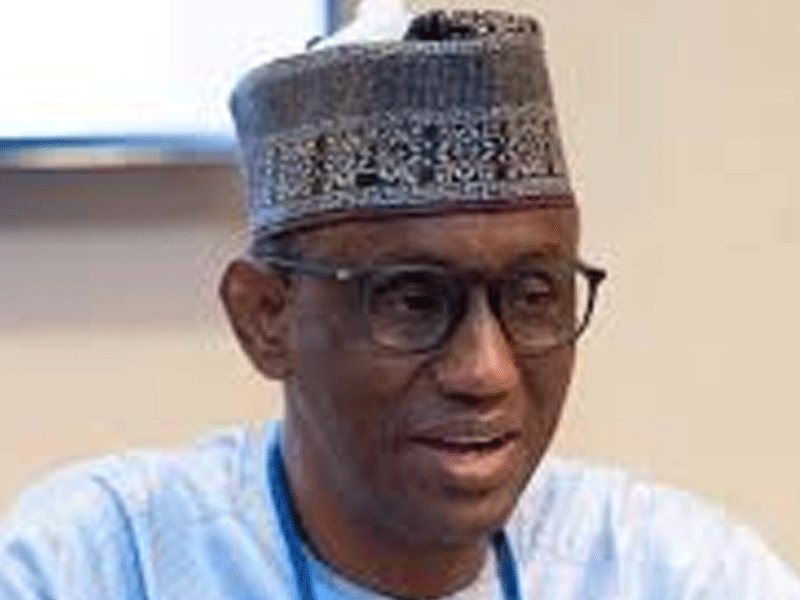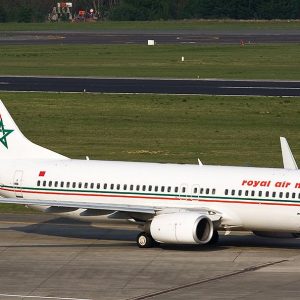*National security goes beyond arms, ammunition, says Ribadu
*Harps on need for stakeholders’ collaboration
Linus Aleke and Oghenevwede Ohwovoriole in Abuja
Security experts have applauded the recent approval by United States authorities to sell high-calibre munitions and equipment to Nigeria, aimed at bolstering the country’s fight against deadly terrorist and bandit groups terrorising parts of the nation.
The experts insist that the $346 million US-Nigerian arms deal will significantly enhance the ongoing efforts against terrorism, kidnapping, banditry, and other emerging security threats.
This comes as the National Security Adviser (NSA), Nuhu Ribadu, yesterday, stressed that national security was not just about human security, arms and ammunition, but requires collaboration and support from all stakeholders.
Ribadu, said this yesterday, in Abuja at the second edition of the Association of Telecommunication Companies of Nigeria (ATCON) strategic meeting with stakeholders on the Executive Order for Critical national information infrastructure.
The US State Department had earlier approved the potential sale of munitions, precision bombs, and precision rockets to Nigeria for an estimated cost of $346 million (about N532 billion).
The approval, which was conveyed in a statement signed by the Defence Security Cooperation Agency (DSCA), confirmed that the required certification had already been delivered to notify the US Congress of the possible sale.
According to US authorities, the approval followed the Nigerian government’s request to purchase: 1,002 MK-82 general-purpose 500 lb bombs; 1,002 MXU-650 Air Foil Groups (AFGs) for the 500 lb Paveway II GBU-12; 515 MXU-1006 AFGs for the 250 lb Paveway II GBU-58.
The request also included: 1,517 MAU-169 or MAU-209 computer control groups (CCGs) for Paveway II GBU-12/GBU-58; 1,002 FMU-152 joint programmable fuzes;
5,000 Advanced Precision Kill Weapon System II (APKWS II) all-up rounds (AURs), each consisting of a WGU-59/B guidance section, a high-explosive warhead, and an MK66-4 rocket motor.
Commenting on the latest arms deal, security experts who spoke to THISDAY said the modern munitions, once delivered, would not only serve as a game-changer, but might also signal the end of over a decade and a half of insurgency and terrorism in parts of the country.
A retired Director of the Department of State Services (DSS), Mike Ejiofor, said the arms deal was a collaborative effort between the two countries to end terrorism in Nigeria and the wider West African sub-region.
Ejiofor, who spoke in a telephone interview, explained that there was no way the US authorities would sell such high-calibre munitions to Nigeria without making adequate arrangements for their storage.
He said, “It should be part of the package because you cannot say you want to tackle insecurity while endangering people’s lives. But my excitement is that this is one of the largest single purchases we are making, and with these types of munitions and rockets, it shows the government’s commitment to addressing insecurity — especially insurgency and banditry in the North-East and North-West.
“I am sure it is not only about selling the munitions or rockets; there must also be technical support and assistance from the United States to help us utilise the equipment effectively. I think the government must be applauded for taking this initiative, more so when we know that in less than two years there will be an election, and the government must have something concrete to show the people in terms of delivering on security — because security threats remain one of our major challenges, and the government promised to tackle them.
“I believe it is a step in the right direction, and the government must be commended for that. My only worry, however, is that I don’t know how long it will take for them to deliver all these munitions and put them to effective use.”
The retired spymaster stated that the arms deal was going to give a major boost to ongoing counter-terrorism, counter-insurgency, anti-banditry, and anti-kidnapping operations in the country.
Security and International Affairs Analyst, Dr. Ambrose Igboke, stated that some of the mistakes the Nigerian military made in the past — particularly striking the wrong locations, which led to civilian casualties — were due to the lack of precision-guided munitions.
He said, “With these precision-guided weapons, which can pinpoint the minutest details of where a strike is being made, it will help prevent future collateral damage during military operations.”
Igboke, who is also a Fellow of Chartered Mediators, further explained: “Such mistakes will be minimised, if not completely eliminated. If you observe how Israel deploys its weapons in crisis-prone areas, you’ll see how precise they are. So when we say we are hitting terrorist targets, the weapons guide the troops to strike accurately, without missing or causing civilian casualties.”
The former Army Spokesperson, Brigadier General Sani Kukasheka Usman (Rtd), said the munitions would certainly add value to the counter-insurgency operations against terrorist groups.
He stated, “We have to look at this from a global perspective, particularly in relation to West Africa and the Sahel region. Given globalisation, no nation can fight insurgency alone — it is a transnational crime — and there is strength in numbers.”
He further explained that there is a new mindset within the international community, recognising the need to support countries actively combating insurgency, so they can contain threats within their borders and contribute to global peace.
“If we judiciously and effectively utilise these munitions and equipment, it will definitely be a force multiplier. It might well be the deciding factor — the turning point — in the fight against terrorism in Nigeria, and indeed across West Africa and the Sahel,” he said.
General Usman, however, stressed that, given the nature of Western nations, “we know these munitions are not coming without conditions attached. They have to protect their own interests. These conditions may relate to human rights or other strategic concerns. However, whatever the conditions, they will not be too stringent as to prevent us from executing the war against terrorists.
“It is also important to ensure that the munitions are used strictly for the purpose for which they were purchased. When the military and other security agencies are equipped with this kind of force multiplier, they will have no excuse not to perform.”
The former Director of Public Relations and Information, Nigerian Air Force, retired Group Captain Sadiq Shehu, said it was good news that the American government has finally agreed to supply Nigeria with the weaponry needed to fight terrorists.
Shehu, who spoke on Arise News Channel yesterday, stated that the Nigerian Air Force (NAF), in particular, had been waiting for this calibre of munitions for years.
He lamented that obtaining these weapons could sometimes be very tedious, even when funds are available.
“It’s not just about handing over money and receiving the equipment. There are numerous background negotiations involving multiple agencies before the equipment is finally released,” he said.
On why the Nigerian military must continue to rely on the United States for sophisticated equipment, the former NAF spokesperson said: “Yes, there are alternatives, but there are certain things we must get from America. American technology is so far-reaching that, even in equipment not manufactured in the US, some critical components are made by American companies.
“For instance, the Super Tucano is originally manufactured in Brazil, but it contains vital components produced in the US. Without those, the platform would not function properly. What the Americans do is that when they supply such technology to any equipment, they include contractual clauses preventing its sale to third parties without prior approval.”
Meanwhile, the NSA, Nuhu Ribadu, has stated that national security was about human security and beyond arms and ammunition.
He stated this yesterday, i Abuja at the second edition of ATCON’s strategic meeting with stakeholders on the Executive Order for Critical national information infrastructure.
The meeting with the theme, “Rallying Critical Stakeholders to Drive the Successful Execution of the Executive Order on Critical National Information Infrastructure,” witnessed the participation of 36 state commissioners and the Federal Capital Territory (FCT), as well as permanent secretaries and heads of ICT agencies.
Represented at the event by the Deputy Director, Strategy, Office of the National Security Adviser (ONSA), Commandant Onibiyo Ezekiel, the NSA observed that national security was about the security of humans, adding that it has gone beyond arms and ammunition.
“The reality shows that security has gone beyond arms and ammunition. Security is about human security,” he noted.
Ribadu also noted that the collaboration of all major stakeholders: including security agencies, operators and governments would ensure the protection of national information infrastructure, adding that, “the global destiny of Nigeria will be shared by this association and every other player within the industry.”
He expressed the need to protect the data of Nigerians, noting that with over 200 million citizens generating vast amounts of data from ATCON facilities, the protection of such data was non-negotiable.
Ribadu further remarked:
“In this Artificial Intelligence era, raw data fuels innovation. We must safeguard both public and private data with robust policies, transcending profit motives for national interest.
“We would therefore, need to develop the appropriate strategies and policies to guide data usage and guard our data in all its states, that is at rest, in transit or in motion.
“The telecom sector is the strategic enabler of Nigeria’s future. Let us rise above narrow preference or interests to build an inclusive, affordable, and secure digital economy,” he added.
The Chief of Army Staff (COAS), Gen. Olufemi Oluyede, who was represented by Brig. Gen. Mohammed Lemu, recalled that recently, the Office of the National Security Adviser classified telecommunication infrastructure as CNII.
This is vital to meet globalisation trends, Nigeria’s national security, economic competition and public safety, he added.
“The effective protection of this infrastructure is paramount to ensure seamless communication, data integrity, operational continuity across all sectors and communication as key enablers of command and control in defence,” he stated.
The Chief of Air Staff, Air Marshall, Hassan Abubakar, who was also represented by Air Vice Marshall, Felix Uwakara pledged the Air Force’s continued collaboration with stakeholders.
He reaffirmed the Nigerian Air Force’s commitment to working with all stakeholders to enhance the resilience of critical digital infrastructure.
The Inspector General of Police, (IGP), Olukayode Egbetokun, in his speech, said a threat to national information infrastructure was a threat to national security.
Stay ahead with the latest updates!
Join The Podium Media on WhatsApp for real-time news alerts, breaking stories, and exclusive content delivered straight to your phone. Don’t miss a headline — subscribe now!
Chat with Us on WhatsApp







